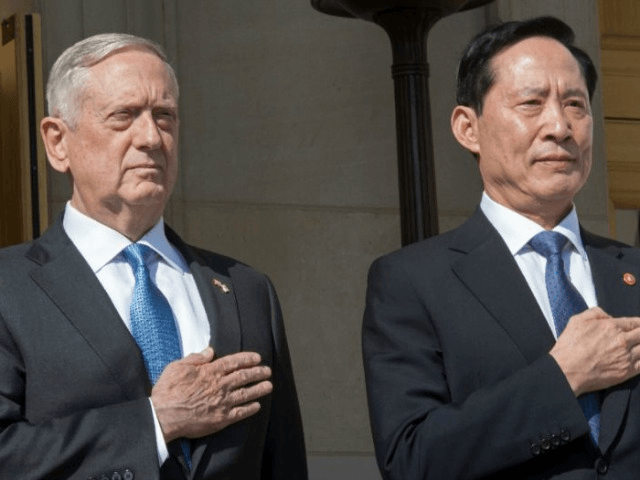A recent poll from South Korean news network YTN found 68 percent support for the return of American tactical weapons to South Korea, an idea Defense Minister Song Young-moo seemed to endorse on Monday, or at least refrain from dismissing out of hand.
Following a conversation with U.S. Secretary of Defense James Mattis, Song said to his parliament, “I told him that it would be good for strategic assets to be sent regularly to the Korean Peninsula and that some South Korean lawmakers and media are strongly pushing for tactical nuclear weapons.”
“The redeployment of tactical nuclear weapons is an alternative worth a full review,” said Song.
Aside from nuclear weapons, the American strategic assets Song had in mind include aircraft carriers, bombers, and nuclear submarines. South Korea is now considering its own nuclear sub fleet, among other defense enhancements.
America’s force of about a hundred nuclear warheads and artillery shells was withdrawn from South Korea in 1991, leading to the signature of the denuclearization agreement that North Korea has so remorselessly violated.
South Korea’s second-largest newspaper, Dong-a Ilbo, went further in a Monday editorial arguing that South Korea “can no longer afford to blindly count on the U.S.’ nuclear umbrella across the Pacific and extended deterrence,” and since Pyongyang’s provocations are making a mockery of “denuclearization,” it might be time for Seoul to develop a nuclear arsenal of its own.
Dong-a Ilbo’s editors sound like they’re on the same page as President Trump when it comes to the futility of discussions with Pyongyang, saying, “The South Korean government should no longer seek meaningless dialogue aimed at denuclearization of North Korea, as well as setting a new North Korea strategy to deal with Pyongyang starting from scratch.”
An unspoken assumption behind South Korean calls for local nuclear deterrence is that America might not be willing to go nuclear in response to a North Korean attack, now that North Korea has, or is on the verge of developing, nuclear ICBMs that can hit the continental United States. South Korea’s fear is that North Korea might launch either a conventional or nuclear attack on them, and then ask the U.S. government if it’s willing to sacrifice Hawaii, Los Angeles, or other American cities as the price for getting involved. It’s a grim calculation analysts hesitate to discuss openly, not least because no one in Washington or Seoul wants to give Pyongyang any ideas.
After quoting from that editorial, the UK Guardian quotes Park Byung-kwang of the Institute for National Security Strategy in Seoul endorsing the idea of bringing U.S. tactical nuclear weapons back to Korea. He noted that international treaties would make it difficult for South Korea to create its own nuclear arsenal.
The Guardian’s analysis suggests that while older South Koreans have generally been the demographic most in favor of confronting North Korea and either building or borrowing a nuclear arsenal, young people and rural South Koreans living near the demilitarized zone seem to be growing weary of living in the shadow of constant North Korean threats.
“Russia, America, China, they all have it, and even North Korea, a small country in deep poverty has it, so why aren’t we allowed to have it? Either America gives us a nuclear bomb or allows us develop one,” said border resident Woo Jong-il.
Ironically, younger South Koreans had largely talked themselves out of worrying about North Korea during the election won by Moon Jae-in, citing the economy and corruption as their chief concerns. Improved relations with South Korea’s surly northern neighbor were a major plank in the liberal Moon’s campaign platform.
Also on Monday, South Korean President Moon Jae-in and U.S. President Donald Trump agreed to scrap limits on the weight of South Korea’s conventional missile warheads. A Defense Ministry spokesman said “unlimited warhead payload will be useful in responding to North Korea’s nuclear and missile threats.”
President Moon’s administration said it was considering the purchase of more advanced American weapons to defend itself, although perhaps not on the scale envisioned by President Trump.

COMMENTS
Please let us know if you're having issues with commenting.